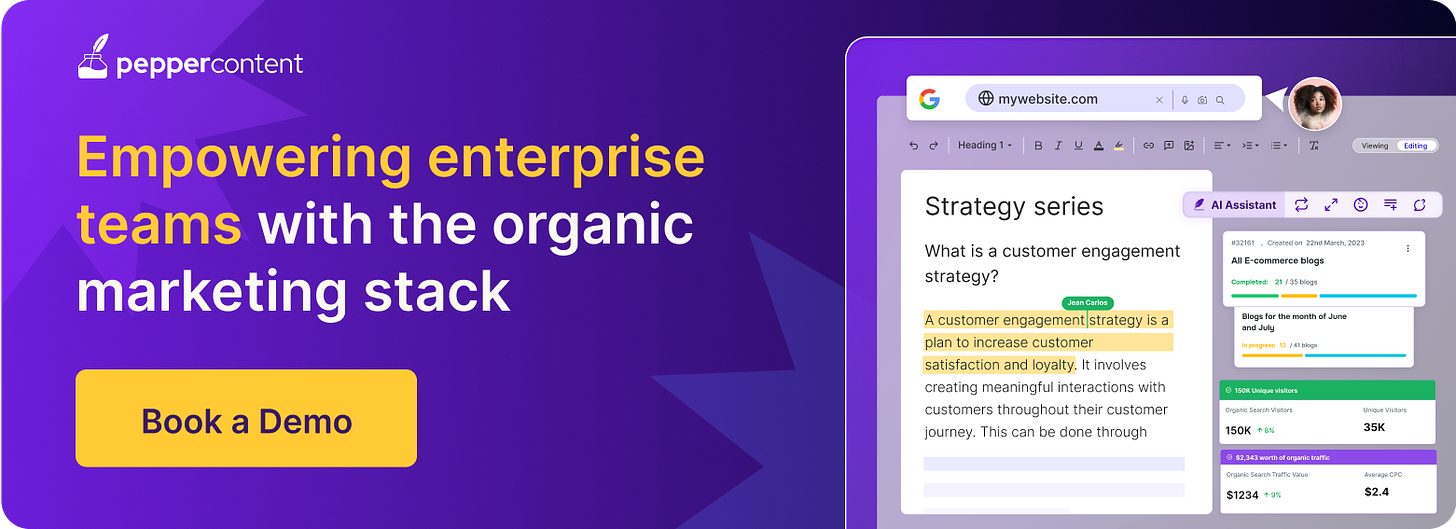2025’s biggest AI update for marketers just dropped
You can officially cancel your Shutterstock subscription.
Joe Lazer is the best-selling author of The Storytelling Edge and fractional CMO at Pepper.
Up until now, AI image generators have been a bit of a joke.
Sure, they’ve been useful for creating pseudo-artistic hero images for blog posts. When prompted well, they’re decent for storyboarding. But their complete inability to include coherent text has made most custom AI images look like Soviet propaganda written by a drunk, illiterate 7-year-old.
But this week, OpenAI released the ChatGPT 4o Image Generator, and quite frankly, it’s a wild upgrade. I started by creating a simple meme that I’ve been meaning to make — capturing the overlap between Substack, Facebook, and LinkedIn users:
Then, I asked it to show a millennial marketer in Brooklyn drawing this Venn diagram on a glass whiteboard. It took a few shots to prompt it correctly, but the output is pretty damn impressive:
(Also, ChatGPT must have been heavily trained on Girls because this Brooklyn dude looks a lot like Adam Driver.)
Besides memes, the obvious implication for this is ads. Already, marketers on X and LinkedIn are showing off impressive examples of using ChatGPT’s new tool to generate reasonably compelling ads in seconds:
Yes, the copy on these ads is weak, but that’s where humans come in. From a pure utility and time-saving perspective, this is one of the biggest AI updates we’ve seen in a while.
It’s also kind of terrifying. Until we get proper legislation on AI watermarking, it’ll be nearly impossible to know what’s real or fake.
The AI Hype Matrix maps the latest AI news stories across an unimpeachable scale of Hype (everyone is talking about this!) and Fear (will this kill my career? Will this kill EVERYONE?). Here’s a rundown of the latest big news in AI.
China's tech giants have been monopolizing headlines, with Alibaba and Baidu launching powerful new models and buzz around Manus AI — supposedly the “world's first general AI agent” — reaching fever pitch. Also buzzy: GTC 2025, the “Super Bowl of AI,” where NVIDIA's Jensen Huang declared the age of generalist robotics is upon us. A soothing sentiment in this already totally normal, not-at-all-dystopian year.
On the topic of the imminent robot takeover, Gemini Live is getting the ability to “see” through your smartphone screen to answer questions in real time, and Claude is finally getting to browse the web like a big boy. Meanwhile, AGNTCY is building a "standard, open framework" for AI agents, presumably so they can all follow the same rules for world domination booking your dinner reservations.
Speaking of paradigms shifting and times a-changin’, Google is testing AI Mode — a move many predict is the beginning of the end of the iconic ten blue links. Also in the SEO arena, Perplexity is making a somewhat perplexing bid for TikTok. And in other head-scratchers, Facebook's bizarre new AI strategy — which involves flooding feeds with AI-generated images of zombie-like senior citizens — isn’t exactly inspiring confidence that the once-mighty social network will rise again. We’ll give Zuck this: His metaverse dreams may be a flop, but his AI-generated nightmare fuel is certainly memorable.
Handshakes > hashtags
It turns out nothing beats a firm handshake, a fresh batch of branded swag, and the sweet, sweet sound of actual humans making smalltalk. After years of Zoom fatigue, marketers are going analog again: Data by marketing agency Sagefrog found that in-person tradeshows have skyrocketed to become the #1 lead source for B2B companies, jumping from 27% to a commanding 45% in just two years. Meanwhile, virtual events continue their surprising renaissance, nearly tripling their effectiveness since 2023.
On the downswing: Digital marketing staples like organic search and SEM have plummeted from top-tier lead generators to middling performers. Cold calling is practically extinct (down to just 3%). And it seems AI hasn't saved account-based marketing either, which remains in single-digit territory.
Open Sesame
Sesame aims to lift AI voice assistants out of the uncanny valley at last. Founded by Oculus co-founder Brendan Iribe, this startup is building voice tech that actually responds to interruptions, maintains context across conversations, and sounds like a real human (complete with natural "umms" and pauses).
Early versions of “Maya” or “Miles” (Sesame’s version of Siri or Alexa) showcase an assistant that doesn't just answer questions but can hold a genuine back-and-forth about complex topics. Don’t expect to download the tool tomorrow — it’s still in demo mode. But enthusiastic early reviews suggest we’re on the cusp of truly conversational AI. Whether that excites or terrifies you probably depends on how much you enjoyed the movie Her.
The 5-minute marketing plan
Most marketing plans fail from complexity, not from lack of ideas. When you’re drowning in growth hacking buzzwords and TikTok strategy meetings, sometimes the best approach is radical simplification. This prompt helps you create a focused 30-day marketing plan that cuts through the noise and identifies just 3 high-impact activities worth your time.
Suggested prompt text:
You're a strategic marketing advisor with 20+ years of experience. Help me create a focused 30-day marketing plan with just 3 high-impact activities. I need something that cuts through the complexity and gives me clear direction.
My business: [describe your product/service]
My target audience: [describe your ideal customers]
My biggest marketing challenge right now: [explain what's not working]
Current marketing activities that seem to be working: [list any bright spots]
Available time per week for marketing: [realistic number of hours]
For each of the 3 recommended activities:
1. Provide a clear objective
2. List specific implementation steps
3. Suggest a simple way to measure success
4. Estimate time required per week
Format this as a one-page plan I can print out and keep visible.

















